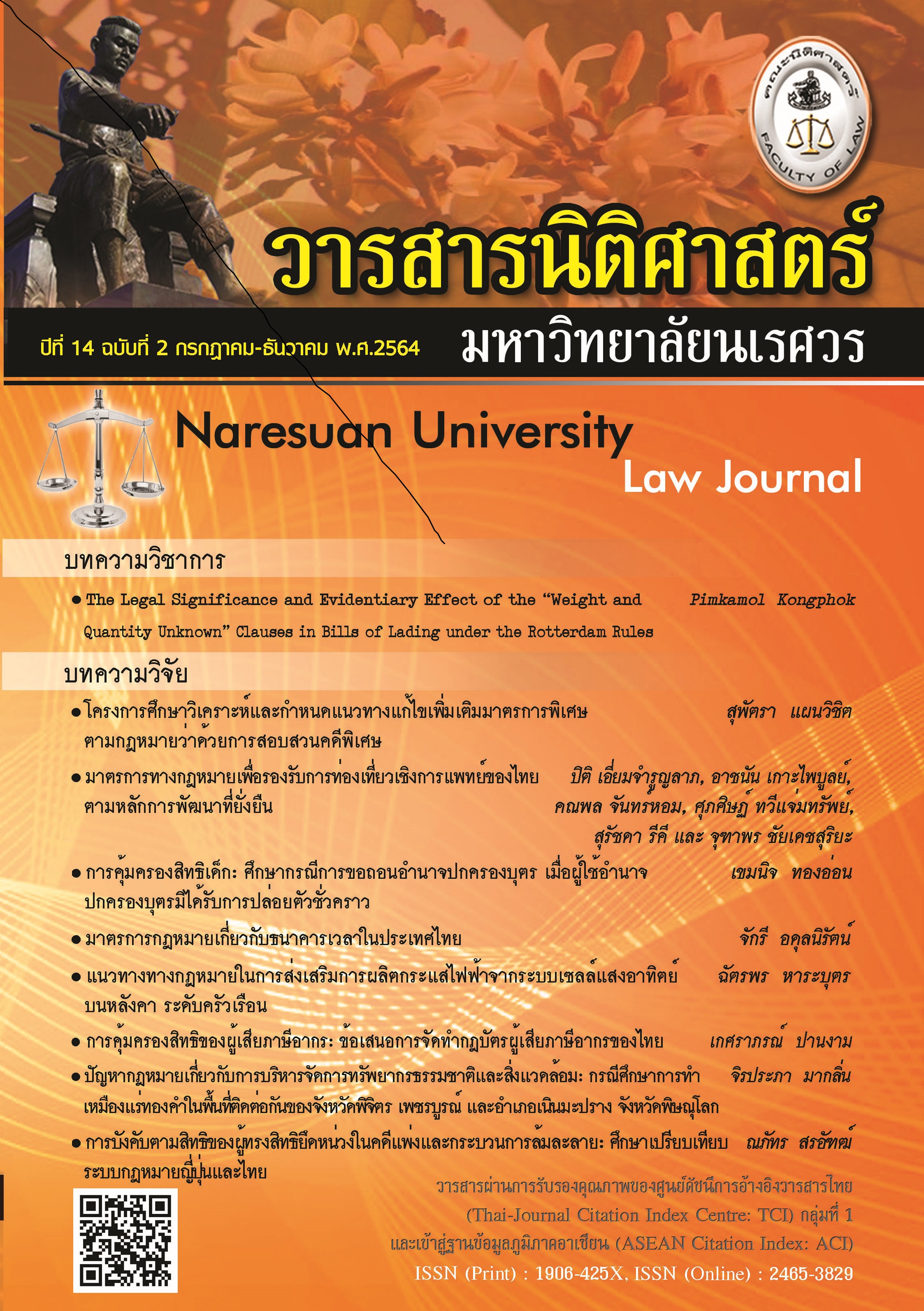Legal Measures Relating to Time Bank in Thailand
Main Article Content
Abstract
Time Bank (Time Banking) is a form of activity that encourages communities to care for each other by exchanging skills, experiences, basic services and can accumulate time in time bank account which can be withdrawn when needed help. The adoption of such a model in the care of the elderly is beneficial to support the aging society in the future. Time Banks is a non-profit organization. Thailand does not have a law to support non-profit organizations. The establishment of the Time Banking Organization is based on the Civil and Commercial Code and the Social Welfare Promotion Act B.E. 2546, which are not sufficient to support the establishment of a time bank. Therefore, it is necessary to take legal measures on time banks. The article suggests that Thailand should enact a law to promote non-profit organizations to promote and support th
Article Details
References
Cahn, Edgar S. No More Throw-Away People the Co-Production Imperative. 2nd ed. Washington, DC: Essential Books, 2004.
Community Organizations Development Institute. “Community Organizations Development Institute Community Welfare.” Accessed 7 May 7, 2021. https://web.codi.or.th/faq/20190425-844/. [in Thai]
Division of Older Persons Welfare Promotion and Rights Protection, Rights and Liberties Protection Department. Guidelines for the Operation of the Time Bank of Thailand. Bangkok: Amarin Printing and Publishing, 2019. [in Thai]
Forecast Statistics Division National Statistical Office. The 2018 Non-Profit Organization Survey. The 2018 Non-Profit Organization Survey. Bangkok: Dokbea, 2019. [in Thai]
Hayashi, M. “Japan’s Fureai Kippu Time-Banking in Elderly Care: Origins, Development, Challenges and Impact.” International Journal of Community Currency Research 16, no. A (2012): 30-44.
Lietaer, Bernard. “Complementary Currencies in Japan Today: History, Originality and Relevance.” International Journal of Community Currency Research 8, no. 1 (2004): 1-23.
Miller, Jill. “Both borrowers and Lenders: Time Banks and the Aged in Japan.” Master’s thesis, Australian National University, 2008.
Miller, Jill. “Mizushima and her Creation of Time Banking.” Accessed June 8, 2021. http://www.transitsocialinnovation.eu/sii/ctp/tb-japan-1.
Nate Hongkrailert. Research and Development of Policy Proposals for the Implementation of “Time Bank” (Research Report). Bangkok: Office of Public Policy Development Support for the Well-Being of an Aging Society, 2018. [in Thai]
Pekkanen, R. “Japan’s New Politics: The Case of the NPO Law,” Journal of Japanese Studies 26, no. 1 (2001): 118-148.
The Revenue Department. “Foundations or Associations Exempt from Taxes.” Accessed March 7, 2021. https://www.rd.go.th/44187.html. [in Thai]


